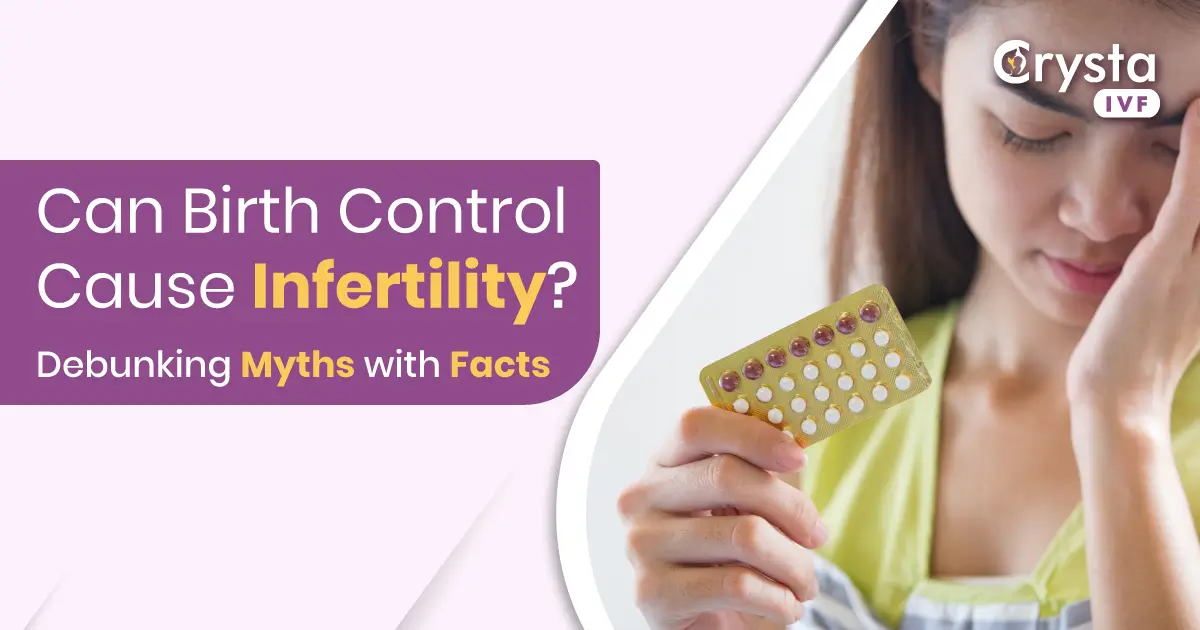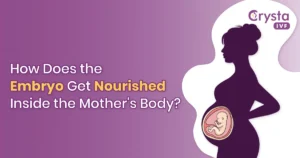Many women ponder whether taking birth control for years may result in infertility at a later age. The good news is that using birth control tablets for an extended period should not affect your ability to conceive. However, longer exposure to birth control can cause other problems that could lead to infertility.
In a recent study, women who had been utilizing birth control for seven years were examined. The result depicted that 21% of all the women were able to conceive within the first month of quitting birth control, and nearly 8% were able to do so within a year.
Still, the question of birth control causing infertility exists. Read the blog to debunk the common myth related to birth control and infertility.
How Birth Control Pill Works?
Here is the process of how birth control pill works:
- During a normal menstrual cycle, the maturation and ovulation of eggs depend on FSH and LH.
- But, due to birth control pills, the production of these hormones is exempted.
- The majority of birth control tablets contain synthetic forms of progesterone and estrogen.
- These hormones are comparable to the hormones generated by the female body.
- Together, these hormones inhibit the brain’s ability to produce and release luteinizing hormone (LH) and fibrillin-stimulating hormone (FSH) that prevents ovulation.
- Hence, the uterine lining and cervical mucous become less favorable for conception due to the estrogen and progesterone from birth control pills.
Does Birth Control Affect Fertility Later in Life?
Fertility experts state that using hormonal birth control will not impact your fertility. However, the use of birth control may cause further health issues that affect fertility, such as irregular menstruation and signs of endometriosis and PCOS.
Therefore, it may appear as though everything is working while you are on the birth control pill. But unless you stop taking birth control and try to conceive, you might not be aware of irregular periods or endometriosis pain.
What Are the Actual Causes of Infertility?
Infertility can have a variety of reasons, including:
- Hormone Imbalance, known as polycystic ovarian syndrome (PCOS), prevents ovulation.
- Uterine fibroids are non-cancerous tumors that develop in the uterine lining.
- Endometriosis is a disorder in which tissue from the uterus develops outside of it.
- Low sperm count is when the amount of sperm in ejaculate is less than normal.
- Additional medical conditions include autoimmune disorders, malignancies, and infections.
- Unexplained infertility is when medical professionals are unable to determine the cause of infertility.
Does Birth Control Affect Egg Quality and Menstruation?
The birth control pill has many disadvantages, but the only benefit it provides is a regular menstrual cycle. Women typically have a precise sense of when their bodies will begin to menstruate, but after taking the pill, it will be difficult for them to know their cycle.
After consuming a birth control pill, the cycle could get irregular, resulting in shorter or longer cycles than usual. Even it could also result in extended menstrual bleeding in which the bleeding can continue for more than five to seven days.
Debunking Common Myths Related to Contraceptives and Infertility
Contraception does not cause infertility, but there is considerable misunderstanding about its consumption. Here are facts related to fertility and contraceptives.
#Myth 1: Normal Period Could not Occur After Contraceptives
Some women may take longer to resume regular menstruation and ovulation after stopping birth control. After discontinuing birth control, most women return to their regular menstrual cycles in about one month. If it takes longer than this, women should see an OB-GYN or a reproductive specialist to rule out any underlying issues or health disorders.
#Myth 2: Birth control can Cause Irregularities in the Menstrual Cycle
A regular menstrual cycle is one of the advantages of using birth control. However, occasionally, it can result in irregular menstruation. Infertility can be exacerbated by a woman experiencing heavy periods, irregular bleeding, or amenorrhea. These problems may become noticeable if a woman quits taking birth control, which can make getting pregnant more difficult.
#Myth 3: It can Lead to Infertility
Sexually Transmitted Infections (STDs) are the first thing that causes infertility. Some common STIs that result in infertility are gonorrhea and chlamydia. Contraceptives such as condoms, pills, and IUDs are used. However, using contraceptives constantly could result in infertility issues. It can affect your menstrual cycle, uterine wall, and hormonal imbalance that could result in infertility.
What Should You Do If You Quit Birth Control and Still Not Pregnant?
After quitting birth control, about 21% of women become pregnant within one to three cycles, and about 80% of women become pregnant within a year of quitting birth control pills.
It is important to consult with a fertility expert if you are facing issues in getting pregnant. Make an appointment to undergo further diagnosis and personalized treatment related to infertility problems. This will help you maximize your chances of conceiving through a healthy pregnancy.
The Bottom Line
After a few days of stopping the consumption of the pill, the hormone supplements exit your body. Your fertility returns to normal, and your menstrual cycle works normally once these hormones are eliminated. Ovulation may start soon after one month of stopping the pill.
It does not necessarily mean that the birth control pills are the cause of your inability to conceive. You must consult an expert doctor to find out the actual reason for your infertility.
Women should speak with a healthcare professional about the consequences of quitting birth control and the potential length of time it takes to conceive. At Crysta IVF, the expert doctors will suggest some diagnostic tests and then proceed with the treatment for your infertility. Book an appointment to consult with the experts.

Medically Reviewed By
Dr. Nidhi Sehrawet





